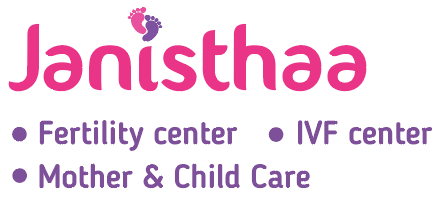Introduction:
In-vitro fertilization (IVF) is a beacon of hope for couples facing fertility challenges. As IVF technology advances, understanding lifestyle factors that impact success rates becomes crucial. If you’re preparing for IVF, optimizing your daily habits can significantly increase your chances of success. This guide dives deep into the key lifestyle elements affecting IVF success rates in India and practical tips you can adopt for a successful journey.
The Role of Healthy BMI in IVF Success
Maintaining a healthy Body Mass Index (BMI) is more than just about looks—it’s a cornerstone of reproductive health. Studies indicate that both underweight and overweight individuals face lower implantation success rates. Excess weight can disrupt hormone balance, while being underweight can lead to irregular cycles.
Tips to Maintain Healthy BMI:
- Balanced Diet: Incorporate a variety of nutrient-dense foods.
- Regular Exercise: Aim for moderate physical activity, like brisk walking or yoga, for 30 minutes daily.
- Monitor Weight: Regular check-ups can help you stay on track.
Key Insight: Women with a BMI between 18.5 and 24.9 have shown the highest IVF success rate in India.
Eliminate Unhealthy Lifestyle Choices
Certain habits, such as smoking, excessive alcohol consumption, and drug use, can severely impact fertility:
- In Men: Decreased sperm count and poor motility.
- In Women: Hormonal imbalances and increased miscarriage risk.
Steps to Quit:
- Seek professional help or counseling.
- Join support groups tailored for individuals undergoing fertility treatments.
Expert Tip: A healthier lifestyle can sometimes improve fertility to the point where IVF may not even be necessary.
Minimize Caffeine Consumption
Caffeine, while a common part of daily life, poses risks for women undergoing IVF. Studies show that even moderate caffeine intake can affect implantation and increase miscarriage risk.
Recommendations:
- Limit to one cup (about 200 mg) of coffee per day.
- Opt for decaffeinated beverages or herbal teas.
Note: Male fertility is less affected by caffeine but should still be moderated.
Follow a Fertility-Boosting Diet
Nutrition plays a pivotal role in improving reproductive health. A fertility-focused diet can enhance egg and sperm quality, promoting successful implantation.
Key Nutrients and Foods:
- Folic Acid: Leafy greens, beans, lentils.
- Omega-3 Fatty Acids: Salmon, chia seeds, walnuts.
- Antioxidants: Berries, nuts, and colorful vegetables.
- Zinc and Iron: Lean meats, shellfish, whole grains.
Foods to Avoid:
- Processed foods high in trans fats.
- Excess sugar, which can spike insulin and affect ovulation.
Quick Tip: Stay well-hydrated—water aids nutrient transport and improves cervical mucus quality.
The Right Balance of Exercise
While exercise is beneficial, too much can be counterproductive during IVF. High-intensity workouts may affect hormone levels, especially in women.
Recommended Routine:
- Low-Impact Activities: Walking, swimming, light yoga.
- Avoid Over-Exercising: Limit to 30 minutes of moderate exercise daily.
Fun Fact: Regular but moderate exercise can increase blood flow to reproductive organs, improving the chances of embryo implantation.
Manage Stress for Better IVF Outcomes
Stress isn’t just mental—it affects hormonal balance, directly impacting fertility. High cortisol levels can disrupt ovulation and reduce the chances of a successful pregnancy.
Stress-Reduction Techniques:
- Meditation and Mindfulness: Reduces anxiety and promotes emotional well-being.
- Therapeutic Activities: Painting, gardening, or music.
- Join Support Groups: Connect with others undergoing IVF.
Remember: A stress-free mind creates a more conducive environment for implantation and early pregnancy.
Importance of Sleep During IVF
Sleep is crucial for hormone regulation. Lack of quality sleep can disturb the production of reproductive hormones like estrogen and progesterone.
Sleep Tips:
- Stick to a consistent sleep schedule.
- Avoid screens before bedtime.
- Create a relaxing pre-sleep routine.
Did You Know? Women who get 7-9 hours of sleep per night have shown higher IVF success rates in India.
FAQs About IVF Success and Lifestyle
Q1: Can diet alone improve IVF success rates?
Yes, a balanced diet rich in essential nutrients can significantly improve egg and sperm quality, boosting IVF success rates.
Q2: Is it safe to exercise during the IVF cycle?
Moderate exercise is recommended, but high-intensity workouts should be avoided, especially after embryo transfer.
Q3: How much caffeine is safe during IVF treatment?
Limit caffeine to about 200 mg per day (one cup of coffee). Avoid entirely if possible.
Q4: Does stress affect IVF outcomes?
Yes, high stress levels can impact hormone balance, reducing the likelihood of implantation. Stress management is crucial for IVF success.
Finding the Right Fertility Clinic for Your IVF Treatment
Maximizing IVF success rates in India involves more than just medical intervention—it’s about nurturing your body and mind. By maintaining a healthy lifestyle, following a balanced diet, managing stress, and choosing the best IVF hospital in Bangalore, you can improve your chances of a successful pregnancy. Remember, each step you take brings you closer to your dream of parenthood.

